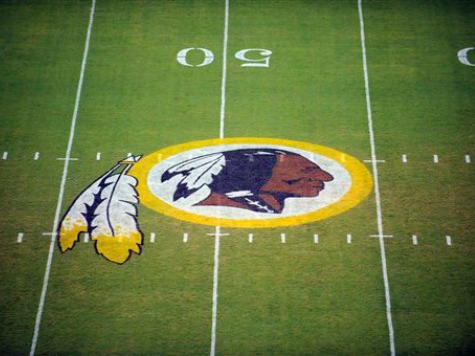In his dissent in the Redskins trademark case on Wednesday, Administrative Trademark Judge Marc Bergsman blasted three non-Native American “experts” who concluded there was a “clear trend” to label the term “Redskin” as offensive despite a preponderance of the evidence.
In a 2-1 decision, the Trademark Trial and Appeal Board canceled the Redskins trademarks, concluding they are in violation of federal law because “Redskin” is a “disparaging” term. The Redskins vowed to win on appeal and emphasized that the registrations will remain in effect while the team appeals.
After concluding that “the same evidence previously found insufficient to support cancellation,” Bergman noted that “Dr. Geoffrey Nunberg, Dr. Ronald Butters, and David K. Barnhart were qualified as expert witnesses in linguistics, none of whom specifically researched the Native American viewpoint of the word ‘redskin(s)’ in connection with football-related services during any time period.”
“Despite the fact that the issue before us is how Native Americans perceive the term ‘Redskins,’ we are presented with the expert testimony of three non-Native American men opining on how other presumptively non-Native American men and women (i.e., the editorial staff of dictionary publishers) perceive the term ‘Redskins,'” he wrote.
The experts determined that there was a “clear trend beginning in 1966 to label this term as offensive,” but Bergsman said that the “‘clear trend’ comprised only two dictionaries.”
“Two does not make a trend,” he said, noting that “the next dictionary to set forth a negative usage label was the 1980 Oxford American Dictionary.”
Bergsman dissented “because the dictionary evidence relied upon by the majority is inconclusive and there is no reliable evidence to corroborate the membership of National Council of American Indians.”
He said that the “petitioners failed to show by a preponderance of the evidence that a substantial composite of Native Americans found the term REDSKINS to be disparaging in connection with respondent’s services during the relevant time frame of 1967-1990”:
It is astounding that the petitioners did not submit any evidence regarding the Native American population during the relevant time frame, nor did they introduce any evidence or argument as to what comprises a substantial composite of that population thereby leaving it to the majority to make petitioners’ case have some semblance of meaning.
“By this dissent, I am not suggesting that the term “redskins” was not disparaging in 1967, 1974, 1978, and 1990 (the registration dates at issue),” he wrote. “Rather, my conclusion is that the evidence petitioners put forth fails to show that it was.”

COMMENTS
Please let us know if you're having issues with commenting.